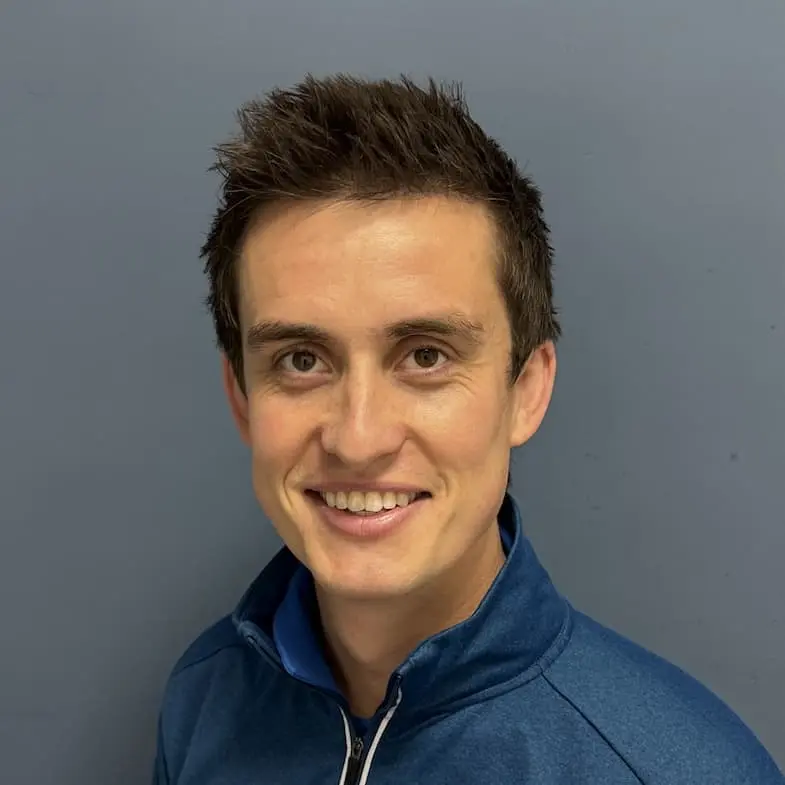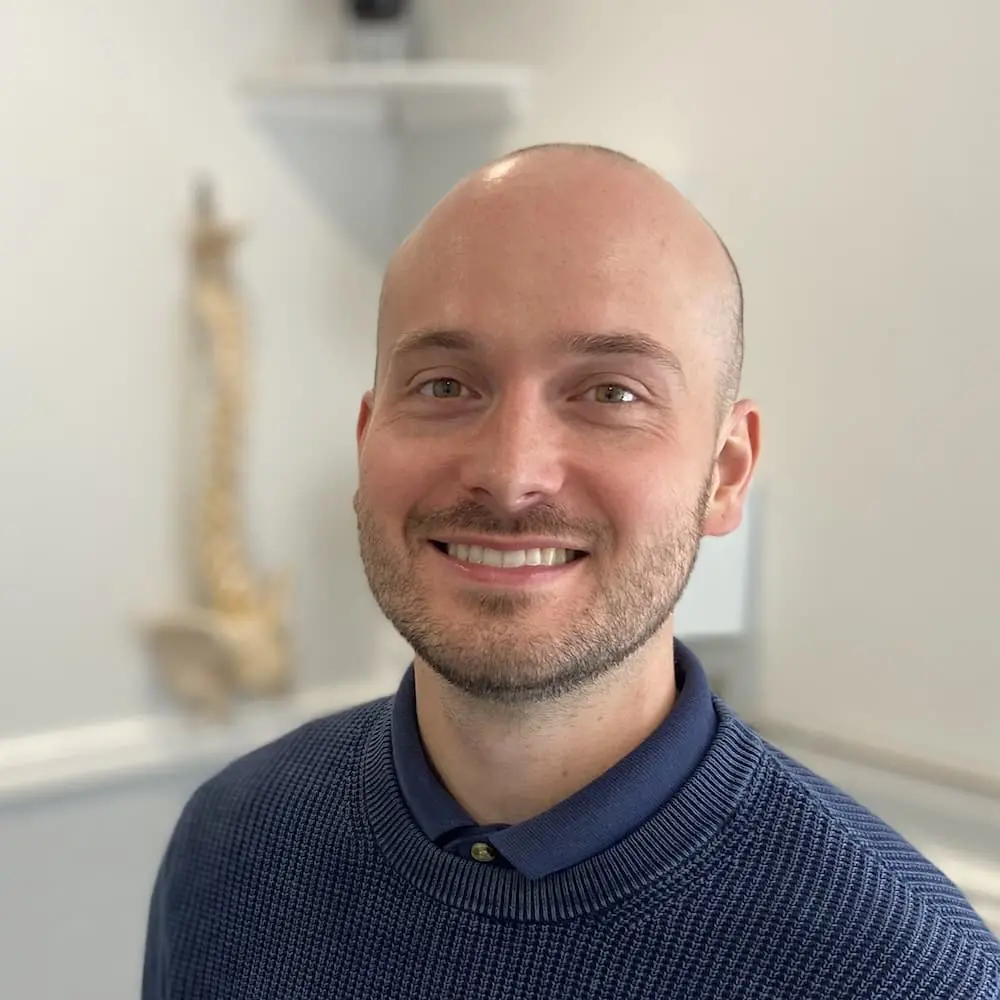Headaches
What conditions can affect or cause headaches?
Headaches can be caused by a wide range of factors. They are very common and experienced by people for various reasons. Here are some of the most common conditions and factors that can affect or cause headaches:
- Neck tension: Headaches can stem from issues in the neck and are often caused by poor posture, neck injuries, or degenerative conditions in the cervical spine. Typically, tension or fatigue of the upper neck muscles can cause radiating pain into the head or can irritate nerves which wrap around the head which can feel much the same as headaches.
- Hormonal Changes: Fluctuations in hormones can trigger headaches in both men and women. Some triggers can include stress, menstrual cycles, pregnancy, and menopause.
- Dehydration: Not drinking enough water can lead to dehydration, which can trigger headaches.
- Caffeine Withdrawal: If you’re used to consuming a lot of caffeine and suddenly stop, you might experience headaches as a withdrawal symptom.
- Eye Strain: Prolonged use of digital devices or reading in poor lighting conditions can strain the eyes and lead to tension headaches.
- Sleep Disorders: Sleep deprivation, sleep apnea, and other sleep disorders can contribute to headaches.
- Brain Tumors or Structural Issues: While rare, certain brain tumors or other structural issues within the brain can cause chronic headaches.
What are the symptoms of headaches?
Headaches can vary in their symptoms based on the type of headache you are suffering with or the underlying cause. Here are some common symptoms associated with different types of headaches:
- Tension-Type Headaches: Mild to moderate dull, aching pain on both sides of the head or at the temples. Feeling of pressure or tightness around the head or neck. Not accompanied with nausea or vomiting. Some sensitivity to light and sound.
- Migraines: Severe throbbing, pulsating or pressure-type pain, often on one side of the head which can be associated with nausea and vomiting. Sensitivity to light is common and can be associated with visual disturbance around the time of the headache. Migraine sufferers are often left feeling fatigued and irritable following.
- Cluster Headaches: So called as episodes cluster around a period of weeks or months with longer spells of relapse without pain. Pain is intense and often centred around one eye. Can cause red or teary eyes, nasal congestion and facial sweating on the same side as the pain.
- Sinus Headaches: Pain and pressure in the forehead, cheeks, and around the eyes often accompanying a sinus infection. Pain worsens with bending forward.
- Cervicogenic Headaches: Pain that originates in the neck and radiates to the head. Often one-sided but not always. Can radiate around the side of the head and around the eyes.
What causes headaches?
Headaches can be caused by a variety of factors, and the underlying cause often depends on the type of headache you’re experiencing. Here are some common causes of headaches:
- Tension and overloaded muscles: A large proportion of headaches result from muscle tension in the upper neck and base of the head. Stress, anxiety, or too much time spent in one position can contribute to these types of headaches.
- Dehydration: Not drinking enough water can lead to dehydration, which can trigger headaches.
- Triggers: Migraine and some other types of headaches can be triggered by various factors, including certain foods (e.g., caffeine, alcohol, chocolate, aged cheeses), hormonal changes, sensory stimuli (bright lights, strong odors, loud noises), weather changes, and changes in sleep patterns.
- Sinus Congestion and Infections: Sinus headaches can be caused by congestion or inflammation of the sinuses due to allergies, infections, or other irritants.
- Hormonal Changes: Hormonal fluctuations, particularly in women, can trigger headaches. This can occur during menstrual cycles, pregnancy, and menopause.
- Infections and Illnesses: Headaches can be a symptom of various infections and illnesses, including colds, flus, and sinus infections.
- Injuries: Head injuries, including concussions, can result in headaches as part of the body’s response to trauma.
What is the best treatment for headaches?
The best treatment for headaches depends on the type of headache you’re experiencing, its underlying cause, and your individual circumstances. Here are some general approaches and treatments that can be effective for different types of headaches.
Over the counter medication is often highly effective at dealing with the symptoms of many types of headaches. However these should be taken under the guidance of a pharmacist or a GP. In some cases such as migraines or cluster headaches, stronger or more tailored medicative approaches (including triptans, codeine or calcium channel blockers) may be beneficial and should be administered by a GP.
For tension or cervicogenic headaches, a tailored approach to calming down and increasing the resilience of the muscles of the neck and base of the head is often effective. This helps deal with the symptoms as well as the underlying cause of the headache. An experienced physiotherapist will work closely with you to form an accurate diagnosis for your pain and build an individualised treatment plan for you which may include manual therapy such as massage and manipulation and tailored exercise to improve the conditioning and robustness of the neck.
Who should I talk to about headaches?
If you’re experiencing headaches and are seeking guidance, there are several healthcare professionals you can talk to, depending on the severity and frequency of your headaches:
- Primary Care Physician (PCP): Your primary care doctor is a good starting point for discussing your headaches. They can evaluate your symptoms, medical history, and perform a physical examination to determine the likely cause of your headaches. They might provide treatment recommendations, prescribe medications, or refer you to a specialist if necessary.
- Physical Therapist: If your headaches are related to muscle tension, poor posture, or neck issues, a physical therapist can provide exercises, stretches, and techniques to help improve these underlying problems.
- Neurologist: Neurologists specialize in diagnosing and treating conditions related to the nervous system, including headaches. If your headaches are severe, frequent, or complex in nature, a neurologist can provide a more specialized evaluation and recommend appropriate treatments.
- Emergency Medical Care: If you experience sudden, severe headaches, especially if they are accompanied by neurological symptoms such as confusion, weakness, visual disturbances, or difficulty speaking, you should seek emergency medical attention immediately.
Is exercise good for headaches?
Yes, exercise can be beneficial for managing headaches in many cases. Regular physical activity has been shown to have positive effects on overall health, stress reduction, and the prevention of certain types of headaches. Regular exercise promotes better sleep quality and helps manage stress, both of which can contribute to a reduced risk of various types of headaches. Maintaining a healthy weight through exercise can have positive effects on preventing obesity-related headaches.
However, it’s important to approach exercise carefully and take individual factors into consideration.
- Tension-Type Headaches:
- Gentle exercises like walking, swimming, and yoga can help relieve muscle tension and improve posture, which are common contributors to tension-type headaches.
- Engaging in regular physical activity can also reduce stress and anxiety, which are known triggers for tension headaches.
- Migraine Headaches:
- While intense or sudden exercise might trigger migraines in some individuals, regular, moderate-intensity exercise can have migraine-preventive effects for many people.
- Aerobic exercises like brisk walking, cycling, and swimming have been shown to help reduce the frequency and severity of migraines.
- Cluster Headaches:
- During a cluster headache episode, vigorous physical activity might trigger or worsen the pain. It’s generally advisable to avoid intense exercise during an active cluster episode.
- However, staying physically active during remission periods can help improve your overall well-being.
Chews Health Top Tip for Headaches
Headaches can be stressful and often debilitating in severe cases, but it’s important not to worry as the vast majority of headaches are not caused by serious or sinister problems. The best cause of treatment is always a personal one. Understanding your triggers and maintaining as healthy of a lifestyle as you can can will go a long way to helping to stem the severity of your headaches and reduce the frequency of your headaches.
However, if you develop other symptoms including dizziness, slurred speech, visual disruption, facial numbness, tingling or pain or symptoms such as weakness, numbness or tingling in your arms, it is important to seek further medical advice.
Our Specialists
Posted onTrustindex verifies that the original source of the review is Google. Tennis elbow pain issue resolved in 3 physio - therapy sessions with Richard Saxton. Back to Badminton and Cricket as normal. Many thanksPosted onTrustindex verifies that the original source of the review is Google. I was referred to Chews Health for shockwave therapy for long term IT Band syndrome. Jon Shurr was excellent at talking me the through the process, setting my expectations and listening to my concerns. I just expected to receive the intervention with Jon but what I actually got was a patient-centred, holistic approach to my condition. Jon was excellent at setting physical challenges to test my knee pain and amending approaches when needed. Having completed my course of shock wave therapy I am feeling the improvements and continue to challenge my knees!! I am so pleased with the success of this therapy and am very grateful to Jon.Posted onTrustindex verifies that the original source of the review is Google. Outstanding care and a well-tailored set of stretches and exercises to address my problems and to keep me in shape. Thank you, Jack!Posted onTrustindex verifies that the original source of the review is Google. I have had a great experience here. I went for a knee injury and they’ve helped me so much build my strength back up. I would definitely recommend. The staff are lovely and really care about your improvements and your injury. Very thankful!Posted onTrustindex verifies that the original source of the review is Google. Highly recommended. My Physio (Jack initial assessment and follow up with Fio) completely understood the issue and worked with me to fix the issue. Thanks for you help.Posted onTrustindex verifies that the original source of the review is Google. I would highly recommend Chews Health. I have seen Jon for help with improving muscle strength in my arms and legs. I am in late 70's and presently seeing him every week because of hip pain. The exercises are helping me cope with an ongoing problem. Thank you. DotPosted onTrustindex verifies that the original source of the review is Google. Jack was incredibly helpful in advising on, and treating, my knee injury which was preventing me from training for the Manchester marathon. Jack was able to explain the cause in a really clear way and created a bespoke training and physio plan which enabled me to run the marathon without the level of pain I had been experiencing. Jack has also significantly improved my running form through his advice and the use of the high tech equipment and analysis software available in each session. Thanks to Jack for enabling me to complete the marathon (and enjoy it!) and for continuing to support on my running journey!Posted onTrustindex verifies that the original source of the review is Google. Great service. Jack was honest and straightforward explaining the rationale behind exercises/decisions. Pragmatic approach focused on getting me safely back to sportPosted onTrustindex verifies that the original source of the review is Google. Have waited a few months post-treatment to write a review - just to be certain! Quite simply, I can't recommend these guys highly enough. I went to them with two badly damaged knees (miniscus tears). Having had three arthroscopes over the years, I was completely resigned to needing surgical intervention again. The Chews team had different ideas. After showing me the latest research findings, they assured me my knees could be rehabilitated without a scalpel. I had just a handful of sessions with them and am delighted to report that, six months on, my knees are great! I'm running 5k twice a week (don't laugh, I loathe running and am no spring chicken) without any pain and have taken up tennis. Everyone at Chews is passionate about their subject, knowledgeable, reassuring and friendly. I wouldn't go anywhere else.Posted onTrustindex verifies that the original source of the review is Google. Couldn’t recommend Chews health enough. Jack’s experience and expertise allowed me to identify my problems and gradually build the strength and ability to return to running pain free.Google rating score: 5.0 of 5, based on 116 reviews




